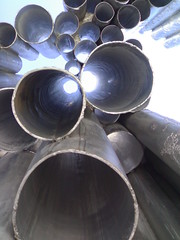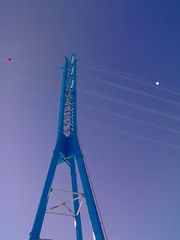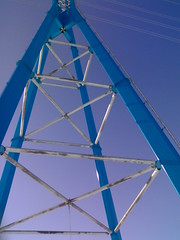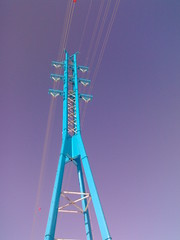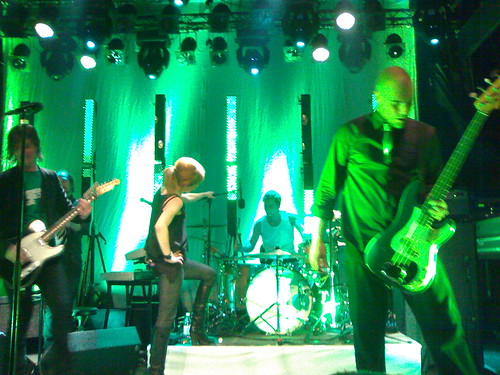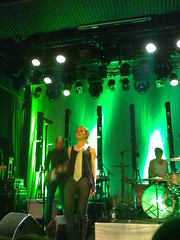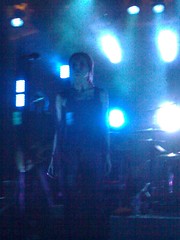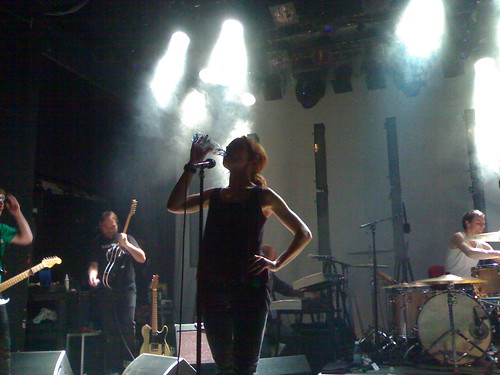In Anticipation for the V for Vendetta Movie
Sunday, 19 .March, 2006, 13:17 -
English Entries,
Literature,
Movies,
Comics
One of the few movie highlights of last year was "Sin City", which was based on Frank Millers graphic novel of the same title. It was an extraordinary visual act and director Robert Rodriguez kept the film strictly to the story of the comic books. Calling Sin City an intellectual outburst would be a little bit far fetched, but it is a much more complex and inspiring story that other comic adaptions, such as Spider Man or The Fantastic Four.
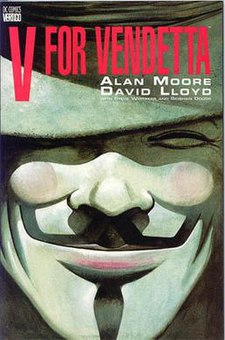
Now the Wachowski brothers and James McTeigue, the makers of the Matrix trilogy, take the next step in advertising non-mainstream comics in theater. Their movie "V for Vendetta" is based on the comic book written by Alan Moore and drawn by David Lloyd in the late 1980s.
The background, to which the story is set, is the United Kingdom which is ruled by a fascist regime, that controls everything and everybody. The only person going against the oppressors is a masked vigilante who calles himself simply "V".
It sounds like just another superhero and of course V is not a normal person, but he is neither Clark Kent nor Peter Parker. V is an intellectual anarchist, one who cites More and Crowley before destroying goverment buildings, one who has a long conversation with justice before blowing up her statue, one who knows mercy and can kill at the same time.

Lloyds drawings give insight into a hopeless and suppressed society, in which the only light seems to be the white, grinning mask of V, whose depcition goes beyond that of a hero. He becomes a mystical figure or even more: a concept – that of individual freedom and anarchy –, that took on flesh and blood (or paper and ink) to break the chains in which it was layed. V is a gathering of citations that went into action and even if you do not have the key to all his quotes, his intentions are shining bright from his smile.
In V, pain is not something that is shown in pictures of blood and dead bodys, it pours out of every page, showing the deep misery the people are in and is finally not abandoned but turned around. It becomes the memory and foundation of a new society, that has to find its way into the future on its own.
Moore took Guy Fawkes as a role model for V. Fawkes was one of the catholics who got convicted and killed on the 5th of November 1606 for his participation in the so-called gun powder plot, an attempt to assasinate the English king, who was not willing to give equal rights to catholics. Moore seemingly got inspired by Fawkes, as he was willing to take extreme measures to get his individual right and he reminds of him by making V's first major attack against the goverment to the 5th of November.
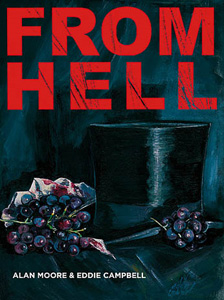
It was in the 1980s, when people like Miller and Moore steered the comic book business into direction of a darker and complex realm. Millers stories are driven by action and effects, that transport a feeling of desperation and the knowledge that the world is a cruel place and it will never change, but it is worth to go against it. What's for Miller the fist of Marv (in "Sin City") or the lance of King Leonidas (in "300") is in Moores universe a citation or a gesture, a joke, that turns into the explosion of the parliament building. His action is founded in a system of thought that does not hesitate to commit a crime, without taking itself too seriously. Moore and V are smiling inside all the misery and tragedy.
The trailers of the V movie look promising, it seems that the makers stayed true to the story and pictures of the comic book. It is over 12 years ago that I read the German version of Moores graphic novel and since then it stayed the best comic book I ever read. I am impatient to see this movie. I hope the movie shows what Moore did to comics and that we all will enjoy it.
Whilst writing this, I found a some material on V and Moore on the web that is worth looking at:



